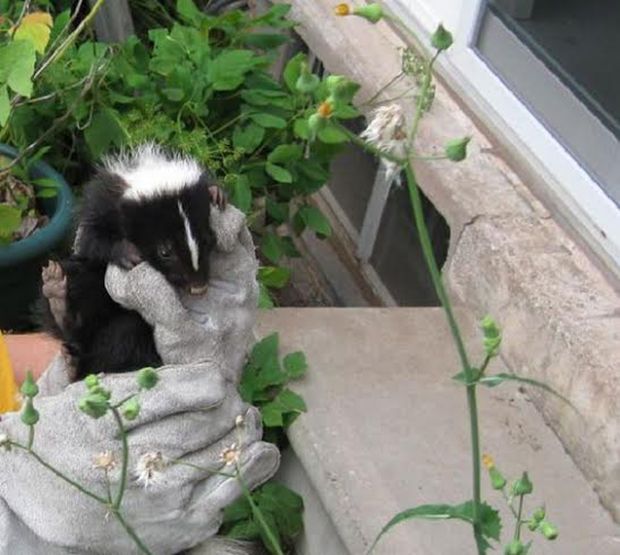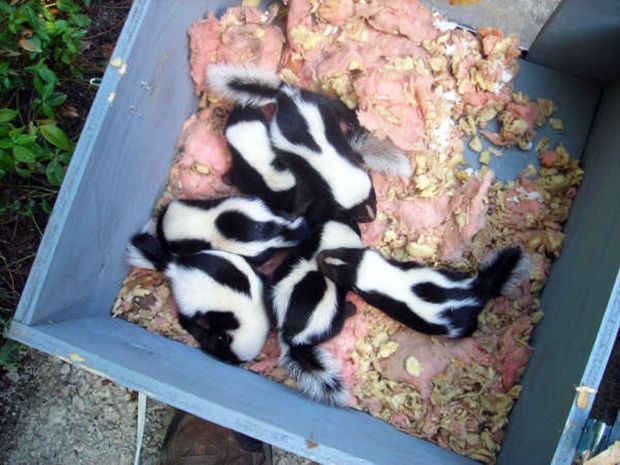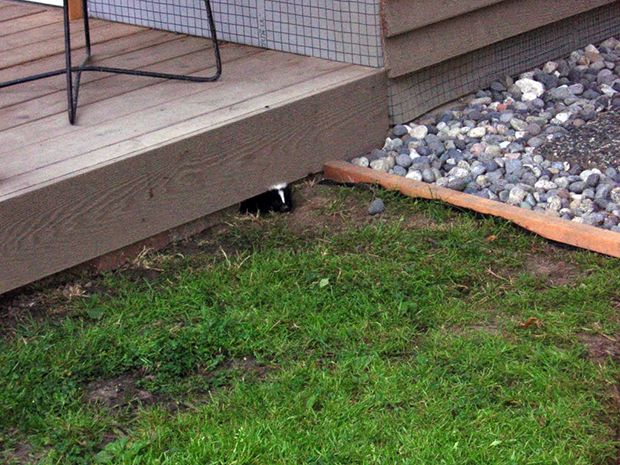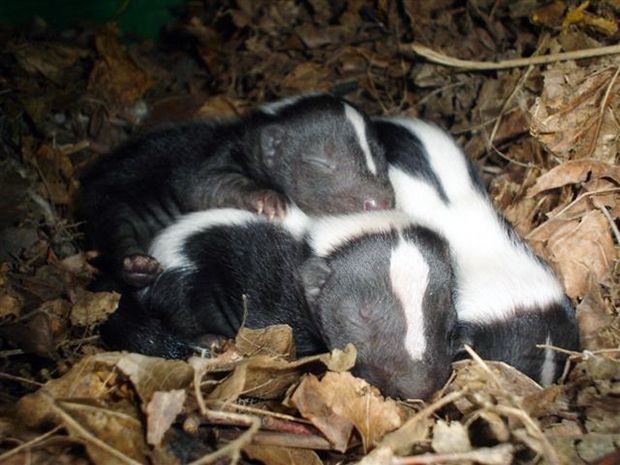Skedaddle Humane Wildlife Control has its first baby skunks of the season! This is unusually early for baby skunks; the earliest we have found baby skunks in the past 10 years! In our 27 years in business, we have only discovered baby skunks this early in spring on one previous occasion.
Skedaddle Humane Wildlife Control believes the late arrival of winter temperatures this year, along with the mild winter has had an impact on urban wildlife, with more adults surviving the winter and increased litter sizes this spring. Urban wildlife such as raccoons, squirrels, skunks, birds and mice have benefited from the lack of snow and availability of food.
“When these animals are fattened by more food availability and a lack of cold temperatures,” notes Skedaddle Humane Wildlife Control President Bill Dowd, “biology often kicks in and gives them more offspring. The weakest of the animals sometimes die in a harsh winter. More were able to survive this winter, which will mean more babies.”
February through March is mating season for the striped skunk, and that translates into “skunk smell.”
The stink occurs when males try to court females who may not be “in the mood.” When that happens, female skunks generate an aroma to repel their rejected suitors. Fortunately, skunk romance only lasts a short time.
After a sixty day gestation period, female skunks give birth to a litter of pups in April or May. Older females come into estrus earlier in the season than younger females and, therefore, have their litters earlier in the spring. Older females also tend to have larger litters. Females can breed in their second summer. In a typical population of skunks the great majority of the females will be pregnant or will have just had litters.

Typically a litter consists of four to seven pups. One male may breed several females. After mating, female skunks disperse from the winter den to a separate maternal den. Grass is usually gathered and brought into the maternal den for bedding.
The young are blind and deaf at birth with short, fine fur. Adult male skunks do not take part in rearing offspring. The young are nursed in the den for about six weeks before joining their mother on trips outside the den. By this time they are miniature replicas of adults. The young are weaned by about two months of age. The family group breaks up in the fall and the young move to new territory. They generally travel about six to 10 km in search of a new home; however, extremes of up to 50 km have been recorded.
Skunks are excellent diggers, and in urban environments like to make their dens below decks, porches and sheds. A skunk living on your property from April to September should be assumed to be a mother.
Mother skunks will rear their litters in their dens. Although skunks are not generally aggressive animals, they will become aggressive if they feel their babies are in danger, and will spray anything they see as a threat.
Skedaddle Humane Wildlife Control’s wildlife technicians are specially trained in how to remove skunks and their babies in a humane way, so they are not separated or put under undue amounts of stress. Common skunk den sites include sheds, decks, porches and steps.
Most baby animals are not mobile for several weeks to months after birth. That means the only way to humanely remove from their den site is by hand. This method is both effective and significantly reduces any chance of injuring them.
Once the babies have been retrieved, they are placed inside a specially designed and heated reunion box. We then use heavy gauge steel screen to block off the mother’s entry point to the deck, porch or shed she was living under. The baby reunion box is placed near the now blocked entry point so their mom can come back and move them to one of her alternate den sites in the area.

After a humane removal, baby skunks are placed in a heated baby reunion box so that their mother can come and relocate them to another den site.
This past week the Ontario Ministry of Natural Resources and Forestry reported six new cases of rabies in the City of Hamilton, five of those cases were skunks and the other a raccoon.
Signs You May Have Skunks
- Faint musk smells under a building or woodpile may suggest that a skunk has taken up residence.
- You may find small, shallow holes in the lawn, similar to those made by squirrels, which are a result of a skunk foraging for grubs and insect larva.
- You may also find plants knocked over or damage to the lower leaves or ears of ripening garden crops, including corn. You should look for other clues as well because foxes also have their own musky scent that may cause misidentification.
- Occasionally a skunk will wander into an open garage or shed, a compelling reason to secure all outbuildings.

Skunks are excellent diggers and like to make their homes under sheds, decks or other structures on properties. A skunk living on your property from April to September should be assumed to be a mother.
If you think you have a skunk problem, call Skedaddle Humane Wildlife Control today: 1-888-592-0387
Proudly serving: Ottawa, Montreal, Halifax, Hamilton, Burlington, Oakville, Mississauga, Brampton, Kitchener-Waterloo, Guelph, Cambridge and the Niagara Region





